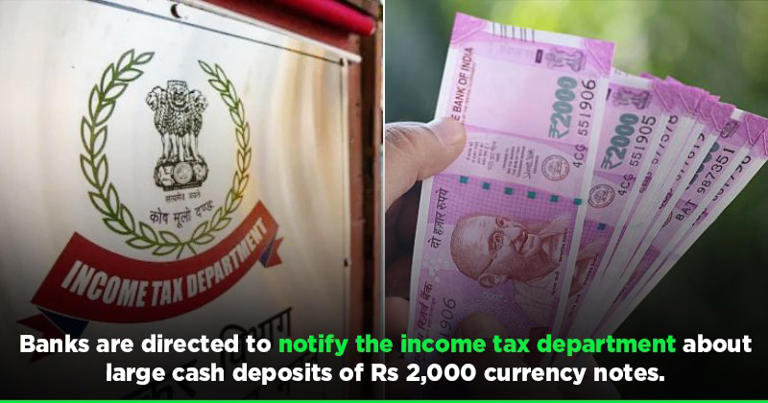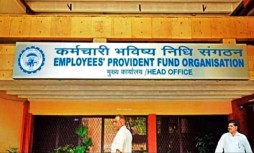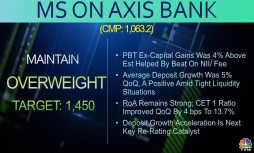Explained: Tax Implications Of Depositing The Outgoing Rs 2000 Notes In Your Bank Account
June 02,2023
It's been nearly two weeks since the RBI announced the withdrawal of Rs. 2,000 notes from circulation and asked the public to deposit or exchange their pink currency notes by September 30, 2023.
Rs 2000 Note Withdrawal Being Compared With Demonetisation
As soon as the announcement came out, many among the public were quick to call it ‘mini-demonetisation’ or demonetisation 2.0, even though the RBI has clarified that Rs 2,000 notes are still legal tender, unlike the old Rs 500 and Rs 1000 notes that were banned in November 2016’s demonetisation.
In its press release, RBI has categorically clarified that the exchange of Rs 2,000 notes into smaller denominations is a part of the ‘Clean Note’ policy of RBI and is not demonetization. Rs. 2,000 notes will continue to remain legal tender even after September.
But what about the taxation of deposits made by the public? India’s largest lender SBI, recently confirmed that it has already received deposits worth Rs 14,000 crore in Rs 2000 notes since the process started last week.
So are the big or small deposits taxable? Let's find out.
Are Rs. 2000 note deposits taxable?
Income tax guidelines mention that individuals who deposit cash above Rs. 2.5 lakh and senior citizens who deposit cash above Rs. 5 lakh may be scrutinised. Any amount within the specified limit will be excluded from scrutiny, considering that the money is from household savings, cash withdrawals, earlier income, and so on, as per Cleartax. In the case of individuals without business income, deposits above the mentioned limits will be verified by the assessing officers.
Also, genuine cash deposits in Rs 2,000 denominated notes in bank accounts in the present scenario can very well be explained either out of regular household savings, out of earlier cash withdrawals, out of cash gifts from blood relatives, as gifts received on marriage occasions, or as cash sales in the case of proprietors and other businesses, subject to such claims being supported by authentic documentary evidence.
For businesses, cash sales up to Rs 2 lakh from a person in a single day are allowed as per income tax provisions. Post-RBI announcement, cash sales in Rs 2,000 notes have risen sharply for all food delivery apps, petrol pumps, malls, grocery stores, hospitals, jewellery stores, etc.
Once the businessman establishes the genuineness of cash sales in ₹2000 notes, being done on or after May 19 and even after September 30, with all supporting documents like sales invoices, bank statements, confirmations from buyers, GST returns, co-relation of such cash sales with purchases and stocks, etc., then the authenticity of making cash deposits out of such cash sales can’t be disregarded and rejected by tax authorities merely on account of variation in the ratio of cash sales in the current period with that of an earlier period. There can’t be a fixed sales pattern in any business, as per the Mint report.
Also, once a businessman has offered his cash sales as his business income, taxing the cash deposits made out of his cash sales as unexplained cash credits amounts to double taxation and is not permissible.
So, even after the RBI announcement, those having a valid and genuine explanation of the sources of cash deposits of Rs 2,000 notes need not panic and should go ahead with depositing their hard-earned money in their bank accounts, keeping intact all supporting documentary evidence in corroboration of such cash deposits.
Large Deposits To Be Notified To The Income Tax Department
The report mentioned that banks will be required to notify the income tax department about large cash deposits of Rs 2,000 in currency notes above a threshold as part of the statement of financial transactions (SFT) they are mandated to submit to the tax authority annually.
However, the exact currency denomination of the deposits does not need to be specified. This move would bring large cash deposits made during the ongoing phasing out of ₹2,000 notes under the radar of tax officials, who routinely comb through the data to detect tax evasion, two people informed about the development said on the condition of anonymity. The reporting thresholds stand at ₹10 lakh for term and savings deposits and ₹50 lakh for current account deposits.
To be sure, this reporting system has been in existence for a long time and is not a new provision in the wake of the RBI’s decision to recall ₹2,000 notes, said a third person, who also reportedly spoke on condition of anonymity.
"Everyone may keep some funds in cash for a rainy day. But can there be a genuine reason for anyone to maintain large piles of cash, especially high-denomination notes, instead of trying to earn interest? That behaviour should merit an explanation, especially if the deposit is disproportionate to the income reported in the tax return. So, that question will be asked," one of the two people cited above said on the condition of anonymity. The third person, who is knowledgeable about the workings of the tax department, said it might be premature to speculate whether large cash deposits in the wake of the withdrawal of ₹2,000 notes reported by banks will attract scrutiny. "Let people exercise their right to deposit or exchange the cash. It is not the right thing to spook the public," the person said.





















